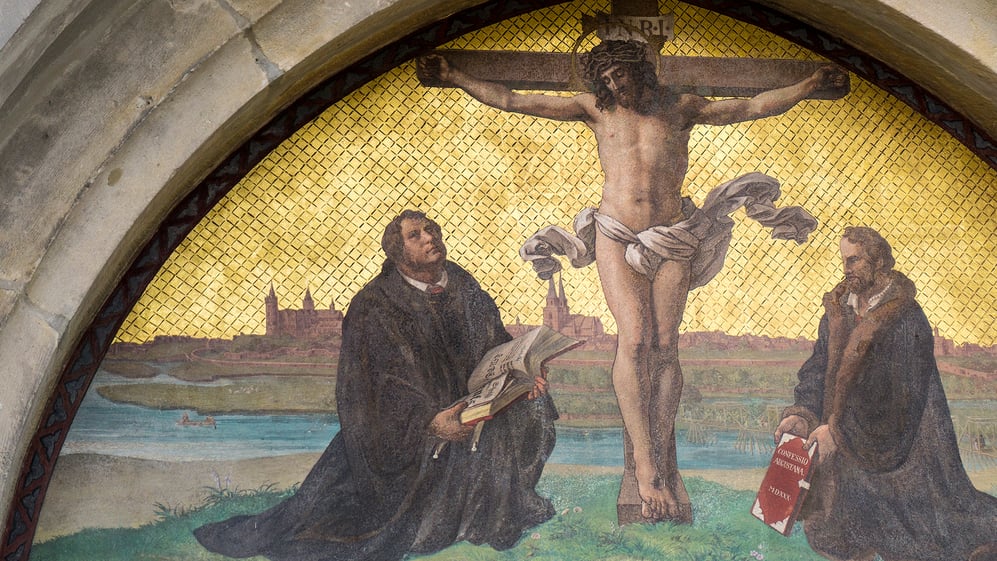For the first time in English, a truly scholarly translation of Luther’s most famous disputation, referred to as The Antinomian Disputations, is available as part of the newest volume in the ongoing Luther’s Works, Volume 73. Read an excerpt from the introduction below about the doctrines of Law and Gospel.
The First Disputation against the Antinomians
You have not often heard that there is no better ‹and more comprehensive› way of teaching and preserving pure doctrine than that we follow this method: namely, that we divide Christian doctrine into two parts, Law and Gospel. So, likewise, there are two things that are set before us in God’s Word: God’s wrath or God’s grace, sin or righteousness, death of life, hell or heaven. These things are clear and certain. There is no Babylonian confusion of opinions and abominations as was the case in the papacy. The first thing—namely, sin, death, and God’s wrath—is inborn and known through our first parent. The second—namely, grace, forgiveness of sins, righteousness, and life—has indeed begun in us through the good work of Christ, but is not completed. It will, however, be fully completed when we are raised from death on that day when our body will be utterly cleansed from all sins and made like the glorious body of Christ, our Head [cf. Phil. 3:21].
Understanding the Law
Therefore, if we abide in these two things we cannot go astray. For we know—and, indeed, feel for ourselves—that sin is present, that death utterly terrifies us, etc. This first thing is taught by the Law, the knowledge of which is especially necessary for the human race, not only because we are conceived and born in sin [Ps. 51:5] and live in it but also because the corruption and blindness of human nature is so great that it neither sees nor feels the magnitude of sin. All humans by nature have some knowledge of the Law, to be sure, but it is very feeble and obscured [cf. Rom. 2:15]. Therefore, it is and always has been necessary to convey this knowledge of the Law to human beings in order that they might recognize the magnitude of their sin and of God’s wrath, etc. It is impossible that God should assist in sin and crown it; at the same time, it is also necessary to teach that the wrath of God and death are the wages of sin [Rom. 6:23].
Mercy through the Gospel
Human nature has been so corrupted and blinded by the devil’s venom in Paradise [Gen. 3:1–6] that it neither comprehends the magnitude of sin nor feels and dreads the punishment of sin, God’s wrath, and eternal death. Therefore, it is necessary that the doctrine that reveals and manifests these evils should be preserved in the Church. Now, this doctrine is the Law. On the other hand, when these same evils have been revealed and shown to us by the Law, it is likewise necessary, if we are not to fall into despair, that the other doctrine should be preserved in the Church as well—the one that teaches consolation in the face of the accusation and terrors of the Law, grace in the face of God’s wrath, forgiveness of sins and righteousness in the face of sin, and life in the face of death. This doctrine is the Gospel, which teaches that the reason why God through His Word has imprisoned all under sin is so that He may have mercy on all [Rom. 11:32; Gal. 3:22]. It teaches that God most certainly desires to forgive all people their sins, to liberate from death, and to give righteousness and life to all who feel their misery, unrighteousness, and perdition. And He desires to do this freely, without any merit on our part, namely, in such a way that these benefits are imparted to believers on account of Christ.
To read more theses and Luther's disputations, order Luther's Works Volume 73 below.












